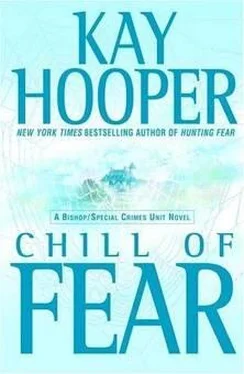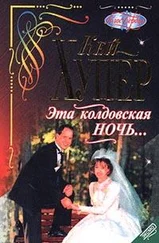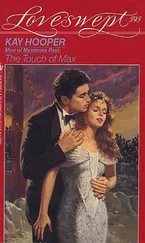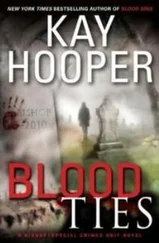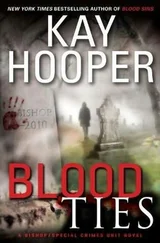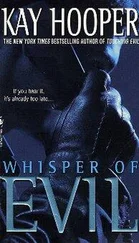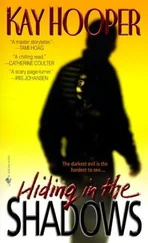He didn't bother to remind her that she was responsible for the fact that they even knew about that black hole. Instead, he said, "You don't have to tell me you'd have been far happier if we hadn't found anything at all in there."
That surprised her, and she shot him a quick look.
"So you could tell yourself once again that you were just imagining things," he explained.
Diana couldn't think of anything to say in defense of her defensiveness, so she changed the subject. "What can an old hole in the ground possibly have to do with murdered children?"
"I have no idea," he admitted.
"If you've been investigating this place for years, how did you miss it?"
"I haven't been investigating this place — unfortunately," Quentin said. "At least, not on site, and not farther back than the last twenty-five years. I have a feeling what we found is a hell of a lot older than that."
"The trap door? Or the hole itself?"
"Both, I'd say. That barn's been there a hundred years, or close to it; it was one of the original structures here. I know that much from the postcards they sell in the gift shop, the ones showing this place around 1902, just after it was first built."
"You think the hole must have been... excavated... before the barn was built?"
"Probably. It would have been hell to dig the thing from inside that tack room. You saw the ground; unless that was a natural opening, somebody had to bore or blast through solid granite at least partway down. It could have been an old well at one time; the size is about right. Maybe it went dry, or the water was bad and it couldn't be used anymore."
"What about the ladder?"
"I've never seen one in a well, even an old one. Looks to me like that hole's been used in some other way."
"Which means we'll find more than water at the bottom."
"More than possible."
Diana shook her head. "The hinges didn't squeak. Did you notice that?"
"Yeah. Old iron hinges with no rust and no squeaks. Which means that somebody's taken care of that trap door."
"It was hidden."
"But in such a way that the saddle racks could be moved aside with very little effort."
"Why?" Diana demanded, hearing the strain increasing in her voice.
"We can't even guess about that, not until we see what's down there."
"And none of you — as kids — found the trap?" She glanced at him in time to see a quick frown.
"Not that I remember," he said.
Diana was silent for a few moments as they continued up the path from the stables to the main building of The Lodge. It was still very early, but the usual dawn risers were up and stirring: gardeners and maintenance people, somebody splashing in the pool, someone practicing their serve on the tennis courts. A morning jogger passed them with an absent nod, his eyes already fixed on the looming mountains whose winding trails challenged hikers and joggers.
For most of the guests, it was just another morning, punctuated as usual with habit and ritual.
Diana wondered what it felt like, that normalcy.
When they stepped up onto the veranda, they pretty much had their pick of tables for breakfast. Only two were occupied, one by a young couple and the other by the little girl Diana recognized from — was it only yesterday morning?
It felt like weeks since she had stood with Quentin in the observation tower and looked down on the little girl and her dog on the lawn below.
Now, the dog was lying across the little girl's lap, and she sent Diana a shy, fleeting smile before continuing to gently stroke her sleeping pet.
"She's up early," Diana murmured.
"Again," Quentin agreed. He indicated a table near the one they had occupied the day before, and as they sat down added, "So far, I've only seen her and one other kid, a little boy. A few teenagers coming and going. As I said, this place doesn't really cater to families."
A waitress approached them with a bright "Good morning" and the coffeepot, effectively ending the discussion for the time being. They accepted coffee and ordered breakfast, neither needing to see a menu.
Diana wrapped her hands around the hot cup, again conscious of a chill she found difficult to understand. The sun was warm on the veranda, on their table. The air was warm and smelled fragrantly of flowers mixed with the sharper scent of bacon cooking.
It had been more than two hours since she'd come out of the gray time. So why was she still cold?
"Diana?"
She met his gaze reluctantly.
"What's bothering you?"
She heard a little laugh escape her.
Quentin smiled. "Okay, dumb question."
Before he could ask a more reasonable variation of it, Diana changed the subject. "You said that you didn't remember if any of you found the trap door that summer."
"That's right."
"I guess... I assumed your memories of the summer would be vivid. That you would have remembered everything because of how traumatic Missy's murder was."
Quentin looked down at his coffee, that slight frown returning. "An understandable assumption. And I don't know why it isn't so. Some things stand out, of course, as clear as snapshots in my mind. Other things..." He shook his head. "There are gaps I can't really explain. A fuzziness to some of my memories."
"Maybe because of the shock of finding Missy," Diana suggested.
"Maybe."
"You were awfully young, Quentin. And it has been twenty-five years."
"Yeah. Still. I should remember more, and what I do remember should be clearer." He shrugged. "Maybe if I could be hypnotized, I could get at the memories. But since that isn't possible..."
"You can't be hypnotized?"
"No. And neither can you." He sipped his coffee, adding, "Psychics are always in that percentage of people who can't be hypnotized. No one knows why."
With some feeling, Diana said, "Just once, I'd love to be able to say you were wrong about something like that. About me."
"Sorry."
"No, you're not."
"Okay, I'm not. Diana, I know all this is hard for you. I get that, I really do. But you have to admit that continuing to deny the paranormal when you're experiencing it on a regular basis is just a little bit stubborn."
"You think so?"
"Just a little bit."
"Well, pardon me for needing more than twenty-four hours to get used to the idea."
Quentin chuckled. "Point taken. I can be impatient sometimes."
"No, really?"
"Sorry. I'll try to do better. And try to remember this is all very new to you."
"I suppose it was something easy for you to accept?"
He hesitated, then grimaced. "It was fairly easy for me to accept the existence of my abilities. But it didn't make my life any easier when it first dawned on me that I was different. Especially since my father, being an engineer, didn't have a whole lot of tolerance for anything that couldn't be scientifically weighed, measured, and analyzed. Still doesn't, really."
"How does he feel about the work you're doing now?"
"He wasn't very happy that I chose to use my law degree in police work, but we're still on speaking terms. Which is something, I suppose."
"And your mother?"
"My mother thinks I walk on water." He grinned. "Being her only offspring, I can do no wrong. But.. .I think it used to spook her when I'd tell her the phone was about to ring, or that my father would be getting an unexpected bonus, stuff like that. We don't really talk about it now."
"That must be lonely."
He thought about it. "In some ways, I guess. Or at least it used to be. But finding a home with the SCU, where the paranormal is the rule rather than the exception, changed everything. For most of the team, it's the only time in our lives we haven't felt isolated and alone."
Diana could well believe that. "Do your parents know you're with the Special Crimes Unit?"
Читать дальше
